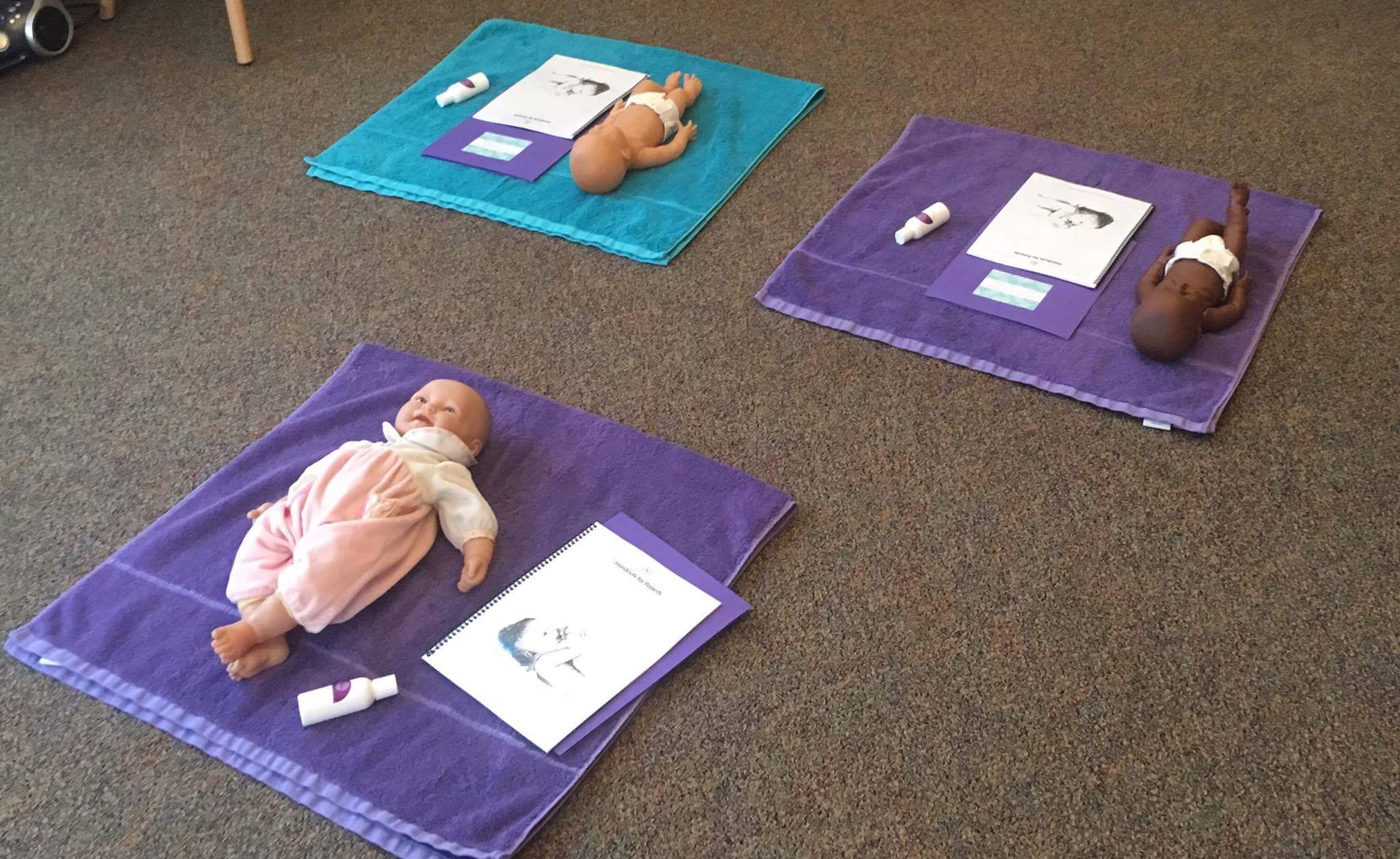
Infant Massage Questions
Frequently Asked Questions About Infant Massage
Gold Coast Doulas is thrilled to present a Part 2 of the Infant Massage guest blog from Cristina Stauffer. Cristina Stauffer, LMSW, CEIM has been passionate about serving women and young children throughout her career. Pregnancy and early motherhood can be one of the most vulnerable times in a woman’s life. Cristina has been dedicated to supporting women through this delicate time by providing therapy and support, education and screening about perinatal mood and anxiety disorders such as postpartum depression and through teaching parents and caregivers the joy of infant massage. She graduated from the University of Michigan with a Bachelor of Arts degree in psychology and from Boston University with a Masters in Social Work. Cristina became a Certified Educator of Infant Massage (CEIM) in 2005 and has incorporated this practice into many aspects of her career. She has been practicing in the field of social work with a focus on women and young children for over 20 years.
Frequently Asked Questions about Infant Massage
Infant Massage has been practiced for centuries in India and other countries, but is still a relatively new practice here in the United States. Vimala McClure, author of Infant Massage: A Handbook for Loving Parents, brought the concept of infant to the US in the early 1970’s. Infant massage classes, books and videos have continued to pop up and are still growing in popularity. For most parents, however, the idea of massaging their baby is a new and different concept. It is normal to feel nervous or awkward about learning a new skill and parents or caregivers often have a lot of questions. Rest assured, infant massage is a very gentle, easy practice to learn and incorporate – anyone can learn to massage their baby. I have listed some of the most common questions I hear from parents and caregivers along with their answers below:
Why should I massage my child?
Infant massage has many benefits including relaxation, bonding and attachment, improved sleep habits and reduction in gas, constipation and fussiness. However, the most beneficial part of massage is the opportunity to just be with your child. Listen with your hands and with your heart as you massage, dropping your expectations or need for accomplishment or perfection. The quality of this interaction is very powerful and allows you to enjoy a special experience with your child, emotionally and physically.
How old should my child be?
We are never too old or too young for massage. Your child will benefit from your nurturing touch from birth through the teen years. The principles of respect and asking permission apply throughout all these years. This is a great way to keep in touch with your child and it is never too late to start! For older siblings, massage is a good way to neutralize jealousy and provide the focused attention they also require. Massage is a relaxing form of communication that can help you maintain positive communication with your child at any age.
How long should I massage my child?
Massage should last as long as it is pleasurable for both you and your child. This may be as little as a few minutes (which can be very effective) and as long as a half an hour or more.
How hard should I press?
Infant massage uses a firm, yet gentle touch. Don’t press too hard—this isn’t “deep tissue massage”, but also don’t tickle or use touch that is too light. Watch for the baby’s reaction to determine the appropriate pressure.
How do I understand what my child needs during massage?
Observe you baby’s breathing to notice how your touch is being received. Your baby’s breathing will probably become deeper and slower. Sighs may indicate that your baby is receiving the massage as nurturing and pleasurable. Facial expressions, body posture, movement and sharing what they like with words and pleasurable sounds also indicate if babies like the experience.
Can Dads do infant massage too?
Yes! Massage is a wonderful way for fathers to demonstrate their love. We must respect that a father’s way of relating to the child may be different from that of mothers. Sometimes Dads give the best massage because they aren’t afraid to go a little deeper. Massage is also a great way for fathers to learn more about their baby’s body, needs, communication and cues.
Gold Coast Doulas is a participant in the Amazon Services LLC Associates Program, an affiliate advertising program designed to provide a means for sites to earn advertising fees by advertising and linking to Amazon.com.
